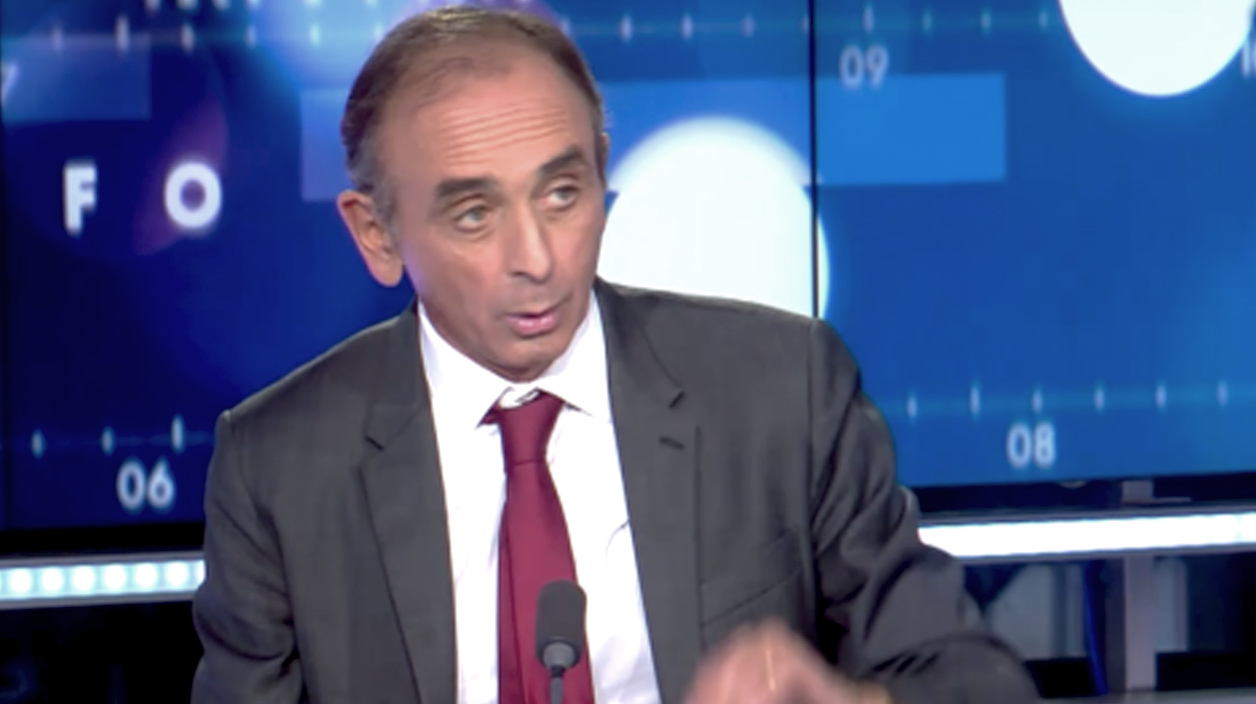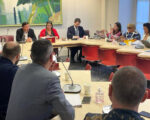>> The trials and tribulations of transgender troops’ hope to end US military taboo
« C’est un processus assez fréquent chez les personnes ayant un problème d’identité sexuelle, d’essayer de régler ce que nous pensons qui ne va pas chez nous, et de considérer que l’armée est la façon d’y parvenir », a déclaré le major Harding.
Elle s’exprimait à Washington lors d’un rassemblement sans précédent de militaires transgenres d’armées étrangères, qui ont partagé leur expérience dans l’espoir de persuader le Pentagone et l’administration américaine de briser ce qui est probablement le dernier tabou: accepter les membres de leur communauté dans les rangs de l’armée des Etats-Unis.
Dix-huit pays permettent au personnel militaire transsexuel de servir leur pays ouvertement, y compris des alliés importants de Washington comme l’Australie, le Royaume-Uni, le Canada, la Suède et la Nouvelle-Zélande.
En 2011, les Etats-Unis ont abrogé la loi très controversée dite « Ne rien demander, ne rien dire » qui obligeait les militaires gays et lesbiens à dissimuler leur homosexualité sous peine de renvoi. Mais étendre ce droit à ne plus devoir se cacher aux militaires transsexuels n’est que peu évoqué.
Selon les estimations, environ 15.500 transgenres serviraient au sein de l’armée américaine forte de plus d’un million de soldats. Si elle venait à connaître leur identité, elle serait tenue de les renvoyer.
Le ministre de la Défense Chuck Hagel s’est dit prêt il y a quelques mois à réexaminer l’interdiction actuellement en vigueur. Mais, à ce stade, aucun processus n’a été lancé et toute initiative visant à incorporer des transsexuels ouvertement déclencherait probablement une vive controverse.
Le major Harding a rejoint l’armée de réserve australienne en 2000 avant d’intégrer l’armée régulière en 2004. Elle a expliqué « avoir vécu dans l’angoisse constante et la crainte que quelqu’un ne découvre mon secret ».
« J’ai perdu le compte du nombre de fois où il aurait été facile de diriger mon véhicule vers le camion qui arrivait en face », a-t-elle raconté devant l’audience réunie par le Syndicat américain des libertés civiles (ACLU). Elle a indiqué que 80% des transgenres ont envisagé le suicide, et que quelque 40% ont tenté de mettre fin à leurs jours.
Après avoir subi les opérations pour devenir une femme, elle travaille désormais dans le Royal Australian Nursing Corps et estime qu' »être honnête et authentique est la clef pour être capable de bien faire son travail ».
Le major Alexandra Larsson, officier de renseignements au sein de l’armée de l’air suédoise, a raconté avoir eu beaucoup de chance et reçu beaucoup de soutien une fois qu’elle a eu le courage de devenir une femme, affirmant avoir « le meilleur métier du monde ». « Le problème aujourd’hui, c’est que tout dépend de qui vous êtes et de l’endroit où vous êtes. Et ça ne devrait pas être comme ça. Tout le monde devrait bénéficier des mêmes opportunités », a-t-elle relevé.
L’éducation, élément crucial
L’élément crucial pour que les transgenres soient acceptés dans l’armée est l’éducation, et s’assurer que ceux qui prennent cette difficile décision de changer d’identité sexuelle puissent le faire dans la dignité et la sécurité. Et peu d’éléments suggèrent que les accepter aurait un quelconque effet sur l’efficacité opérationnelle de l’armée.
« Sans aucun doute, plus nos politiques d’acceptation s’affinent, meilleures sont nos opérations car nous avons des personnes qui sont elles-mêmes, qui sont authentiques sur leur lieu de travail sans avoir à gérer des défis personnels en parallèle », a souligné Sarah Maskell, chef d’escadron dans la Royal Air Force britannique.
Des problématiques comme le partage des douches, la prise en charge médicale et les soins devraient être assez faciles à régler en faisant preuve de bon sens, ont estimé les participants.
Le sergent Lucy Jordan, premier militaire des forces de la Nouvelle-Zélande à être devenue une femme après son incorporation, a salué le soutien qu’elle a reçu de la part de son commandement. « Ce que mon organisation m’a donné, et ce que nous faisons ici, c’est avant tout d’investir dans la chose la plus importante de notre organisation, c’est-à-dire ses membres ».
>> For Donna Harding, joining the Australian army was a bid to try to suppress what she had known from an early age — she was a girl trapped in a boy’s body.
“It’s quite a common pathway for people who are gender conflicted, trying to fix what we see is wrong with us, and see the military as the way of doing that,” Major Harding said.
She was speaking at an unprecedented gathering of transgender troops from foreign armies in Washington, sharing their experiences in the hopes of persuading the Pentagon and the US administration to break perhaps the last taboo — openly integrating members of their community into the military’s ranks.
Eighteen countries around the world expressly allow transgender personnel to serve, including major US allies like Australia, Britain, Canada, Sweden and New Zealand.
But in the United States, despite the 2011 repeal of the divisive “Don’t Ask, Don’t Tell” law, which banned gays from serving openly, there is little talk of extending the same rights to transgender people.
There are an estimated 15,500 transgender people believed to be serving in the US armed forces, but, under the current rules, if they are discovered the military is required to dismiss them.
Defense Secretary Chuck Hagel said earlier this year he was open to reconsidering the current ban. But as yet no review is underway, and any move to incorporate transgender people openly into the ranks is likely to stir controversy.
Harding joined the Australian reserve forces in 2000 before entering the regular army in 2004. She said she had “lived under the constant anxiety and fear that someone would find out my secret.”
“I’ve lost count of the number of times it would have been so easy to drive into that oncoming truck,” Harding told the audience at the event organised by the American Civil Liberties Union (ACLU), noting that 80 per cent of transgender people have contemplated suicide, and some 40 per cent have tried it.
Now after transitioning to become a woman, Harding works with the Royal Australian Nursing Corps and says that being “open and authentic is the key to being able to perform your job.”
Major Alexandra Larsson, an intelligence officer with the Swedish Air Force, insisted she had been very lucky to receive good support once she plucked up the courage to become a woman, saying she has “the best job in the world.”
“The problem today is that it depends on who you are and where you are. And it shouldn’t be like that. Everybody should have the same opportunity … but hopefully people can look at me and say at least ‘for her it was possible.’”
Being true to yourself
Key to ensuring that transgender people can be embraced by the army is education, and working so those who undertake the difficult decision can do so with dignity and security.
There is little to suggest that including them has any effect on a military’s operational effectiveness.
“Without doubt, the more mature our inclusive policies become, the better our operational delivery becomes, because we have got people who are being themselves, they are being authentic in the workplace, without having to have personal challenges alongside that,” said Squadron Leader Sarah Maskell, who promotes equality and diversity in the British Royal Air Force.
Issues such as sharing showers or medical costs and care should be relatively easy to deal with by applying some common sense, the panellists argued.
Sergeant Lucy Jordan, the first person in the New Zealand Defense Forces to become a woman while serving, praised the support she had been given by her commanding officers.
“What my organisation gave me, and what we are doing here, is primarily about investing in the most important thing that an organisation has: its people.”
AFP


















